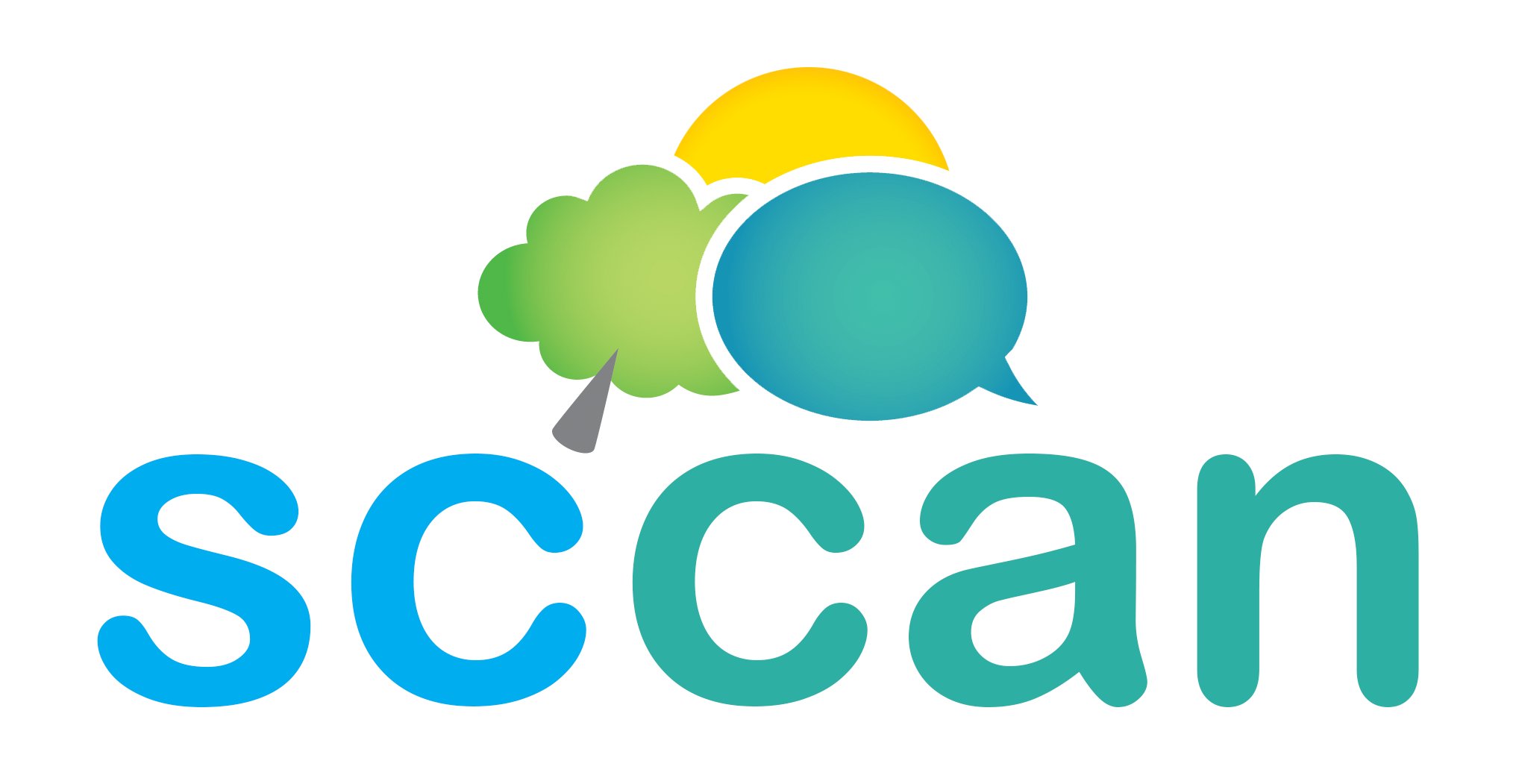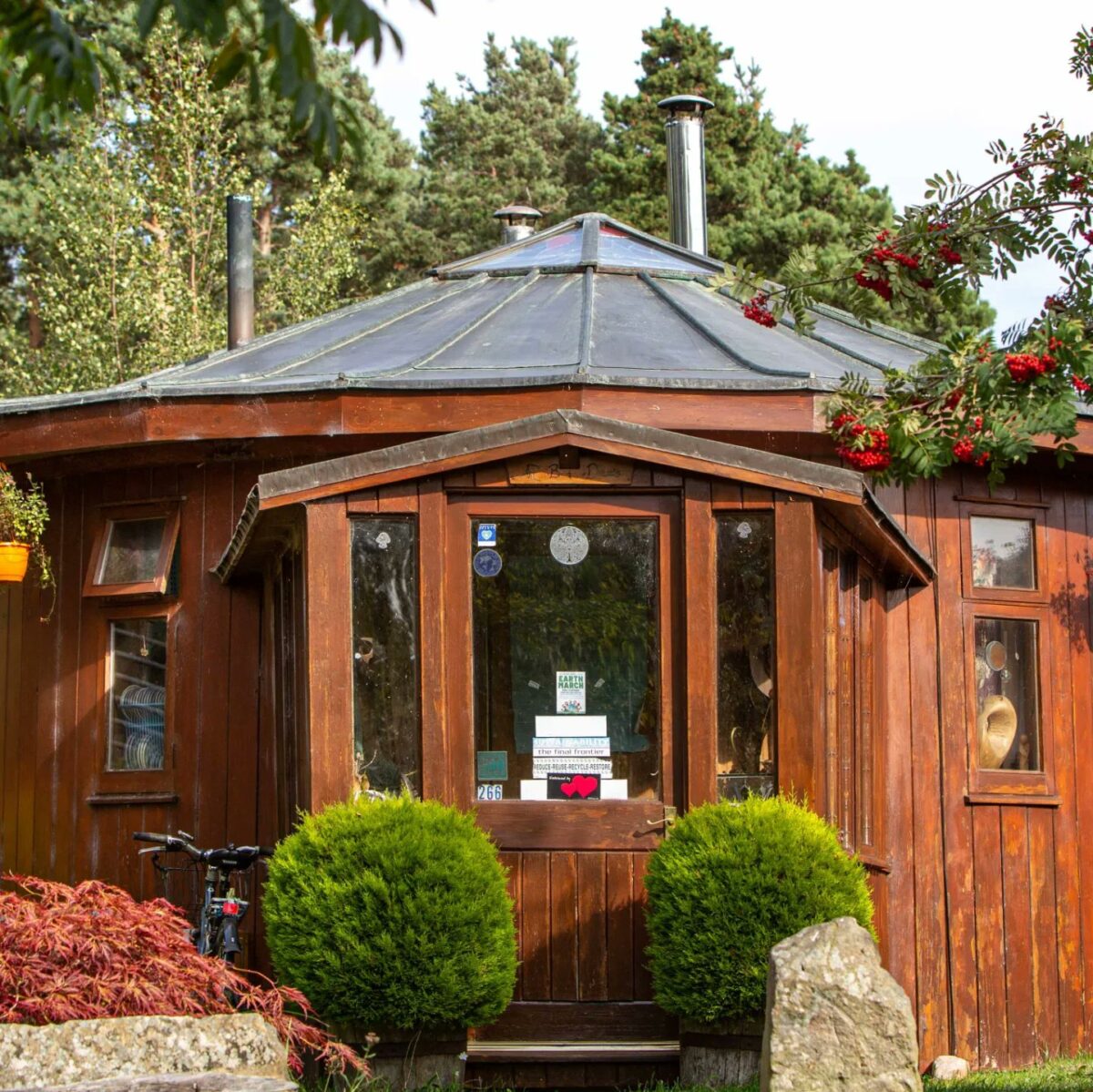by Tara Gibsone
In 1962 Peter and Eileen Caddy, their three children, and friend Dorothy found themselves living in a small caravan on the Findhorn peninsula after losing their jobs in a hotel not far away. Faced with the challenge of having no income and six people to feed they started cultivating their own food. This was the unlikely beginning of the unintentional community which turned into a world-renowned ecovillage… By tuning into the intelligence of nature their garden began to blossom and they started attracting attention when they began having unexpected results. In the early days, this is how the community began to be known, for its abundant gardens grown in adverse and unlikely conditions on the sand dunes of the Findhorn peninsula.
The community began to grow rapidly in the 1970s, from approximately 20 to 150 members. This expansion was a response to the innovative, holistic, spiritually inspired leadership of the Founders and their close associates. Even in the 1970s it was apparent that humanity was facing severe environmental crises, if we did not learn to respect Nature’s intelligence and practice ways for people to cooperate with each other and all of life – in which ‘we’ are an integral part. The community spirit taught that inner listening was vital to making better choices, groups attuning together had a better chance of holding the bigger picture for ways forward, and striving to see ‘work’ as love in action created a healthier cultural environment.
From the 1980s onwards, the development of an ecovillage at Findhorn began to emerge as a practical expression of everything learned so far about the interconnectedness of life and cooperation with nature. It became possible to purchase the Findhorn Bay Caravan Park with the vision to develop the mobile home park into a sustainable settlement. From the start, it was understood that sustainability includes not only ecological homes, renewable energy and food systems but also ethical economics, social cohesion and cultural inclusion.
As the community grew, many offshoot businesses and charities began to emerge and the area became home to a rich tapestry of organisations working towards a sustainable future. The 1980s were a time when many of these community-linked companies were established. Amongst them were AES Solar a manufacturer and installer of thermal solar panels and PV; Trees for Life, a conservation charity with the aim of reforesting/rewilding the Scottish Highlands; a local School based on Rudolf Steiner principles; and the first wind turbine installed in 1989, with three more in 2006.
Throughout the 90s key developments continued… The ‘living machine’, an ecologically engineered sewage treatment plant was established – becoming an early inspiration for Biomatrix-Water’s remediation of polluted waters. Community companies purchased adjacent properties to provide more housing and places for enterprises to flourish.
In 1995 a conference was held that led to the birth of the Global Ecovillage Network (GEN) – connecting communities across the world that are aligned with whole-system thinking focusing on the ecological, economic, social and world view/cultural dimensions of human activities.
Towards the end of the 90’s the Foundation had gained attention from the international community and went on to win Best Practice recognition from the United Nations Centre for Human Settlements.
The 2000’s haven’t gone without their fair share of developments…
- Ekopia Social Investments
- Green Leaf Design and Build are delivering eco
homes within the settlement boundaries; Park - Ecovillage Trust and New Findhorn Directions
sponsor ‘affordable’ leases. - Moray Carshare offers its over 100 members
access to shared transport
Findhorn Hinterland Trust looks after our local woodlands and provides a green burial service. While the expanding community includes many other charities and businesses that provide training, consultancy, healing, arts and educational opportunities, and needed services, locally and internationally.
To this day the Findhorn community continues to evolve and grow, it is by no means perfect and has experienced its fair share of both success and failure, challenges and achievement. Through all of this it continues to actively explore opportunities for, and requirements of, a more flexible, decarbonised energy system. It is a living, learning experiment for how to redesign our human presence on the world – a unique laboratory for change exploring alternatives for a sustainable and regenerative future.

